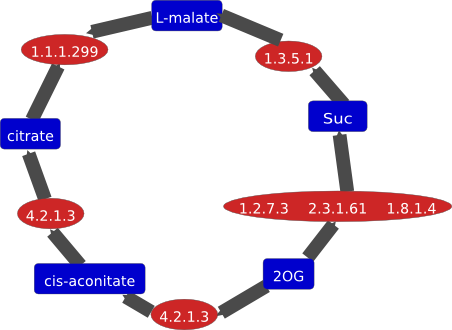EC Number   |
|---|
    4.3.1.3 4.3.1.3 | - |
    4.3.1.3 4.3.1.3 | construction of enzyme structure with a closed active site by modifying the HAL structure including the L-cysteine inhibitor by replacement of the 39-80 loop containing the catalytically essential Tyr53, in every subunit of the homotetrameric enzyme. The most plausible reaction pathway involves the N-3,5-dihydro-5-methylidene-4H-imidazol-4-one intermediate structure in which the L-histidine substrate is covalently bound to the N-3,5-dihydro-5-methylidene-4H-imidazol-4-one prosthetic group of the apoenzyme via the amino group. Zn-complex formation plays a role in the reactivity and substrate specificity |
    4.3.1.3 4.3.1.3 | crystal structure of C273A/D145A, C273A/F329A and C273A/F329G double mutants at 2.25 A, 2.0 A and 1.9 A resolution, respectively |
    4.3.1.3 4.3.1.3 | crystal structure of native histidase inactivated with L-cystein at 1.0 A and Y280F mutant histidase at 1.7 A |
    4.3.1.3 4.3.1.3 | structure solved to 1.8 A resolution |
    4.3.1.3 4.3.1.3 | wild-type and mutant |





